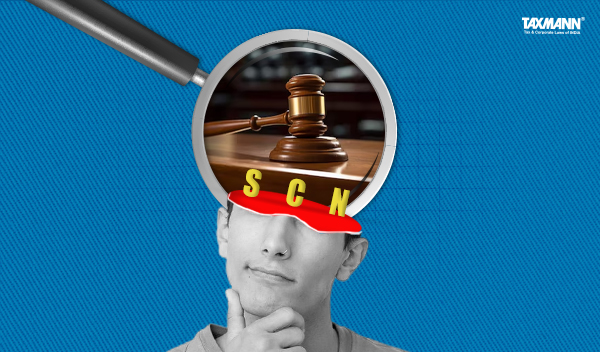[Opinion] Why Every SCN Is Issued u/s 74 of CGST/DGST Act i.e. Invoking Extended Period of Limitation of 5 Years?
- Blog|News|GST & Customs|
- 2 Min Read
- By Taxmann
- |
- Last Updated on 23 September, 2024

Vinod Kaushik – [2024] 166 taxmann.com 464 (Article)
In this article, the author has attempted to decode the genesis of notices issued under Section 74 of CGST/SGST Act. Revenue department specially Central GST always attempts to issue show cause notice by assuming presence of fraud, wilful misstatement or suppression of facts with an intention to evade of payment of tax.
This is to the surprise of everyone that major notices for FY 17-18 are issued on 05-08-2024 i.e. last date as per Section 74 of CGST/SGST Act, 2017.
Now coming to the moot question before all of us that why claiming input tax credit (ITC) based on valid invoices, supplier’s registration active on the date of purchase and fulfilling all requirements of Section 16(2) of CGST/SGST Act, 2017 is not a fraud, wilful misstatement or suppression of facts with an intention to evade of payment of tax?
Below are some standard and important arguments which you can incorporate in your reply to a notice u/s 74 of the Act. It is critical to state that the foundation of notice issued without presence of necessary elements of fraud, wilful misstatement or suppression of facts with an intention to evade of payment of tax need to be challenged aggressively.
Important grounds to counter such Notices
That the issuance of show cause notice u/s 74 (extended period) of the CGST/DGST Act is blatantly illegal, void and without proper authority of law.
The first and foremost condition for issuance of any notice u/s 74 is the presence of any one out of three essential elements which are fraud, wilful misstatement or suppression of facts with an intention to evade of payment of tax.
That you have simply produced the wordings of Section 74 from the bare Act without specifying presence of any specific element of fraud, wilful misstatement or suppression of facts with an intention to evade of payment of tax.
That you have not established on facts and also not provided any evidences in support of your allegations basis which it can be inferred that there is fraud, wilful misstatement or suppression of facts with an intention to evade of payment of tax.
Click Here To Read The Full Article
Disclaimer: The content/information published on the website is only for general information of the user and shall not be construed as legal advice. While the Taxmann has exercised reasonable efforts to ensure the veracity of information/content published, Taxmann shall be under no liability in any manner whatsoever for incorrect information, if any.

Taxmann Publications has a dedicated in-house Research & Editorial Team. This team consists of a team of Chartered Accountants, Company Secretaries, and Lawyers. This team works under the guidance and supervision of editor-in-chief Mr Rakesh Bhargava.
The Research and Editorial Team is responsible for developing reliable and accurate content for the readers. The team follows the six-sigma approach to achieve the benchmark of zero error in its publications and research platforms. The team ensures that the following publication guidelines are thoroughly followed while developing the content:
- The statutory material is obtained only from the authorized and reliable sources
- All the latest developments in the judicial and legislative fields are covered
- Prepare the analytical write-ups on current, controversial, and important issues to help the readers to understand the concept and its implications
- Every content published by Taxmann is complete, accurate and lucid
- All evidence-based statements are supported with proper reference to Section, Circular No., Notification No. or citations
- The golden rules of grammar, style and consistency are thoroughly followed
- Font and size that’s easy to read and remain consistent across all imprint and digital publications are applied



 CA | CS | CMA
CA | CS | CMA
